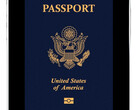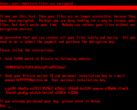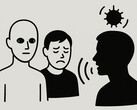Many users treat ChatGPT like a trusted confidant in whom they confide their secrets and worries. The expectation of confidentiality is reminiscent of protected conversations with doctors or therapists. However, unlike traditional forms of communication, privacy is limited in digital AI dialogues.
Automatic scanning by OpenAI
OpenAI relies on technical systems to detect problematic content early on. In an official statement, the company explains:
We have leveraged a broad spectrum of tools, including dedicated moderation models and the use of our own models for monitoring of safety risks and abuse.
This makes quite clear that every conversation is reviewed for potential risks and that moderators can access the information if necessary.
Crisis situations and reporting to authorities
Cases of mental health emergencies are particularly sensitive. OpenAI stresses: "If someone expresses suicidal intent, ChatGPT is trained to direct people to seek professional help." At the same time, the company clearly differentiates between self-harm and endangering others. Suicidal thoughts are not reported to the police in order to protect the privacy of those affected. However, it states:
When we detect users who are planning to harm others, we route their conversations to specialized pipelines… we may refer it to law enforcement.
Legal gray areas and open questions
The surveillance practice raises legal and ethical questions. Users expect confidentiality, but also have to accept expect technical moderation and, in extreme cases, disclosure to authorities. How this balance between security and privacy will prevail in different legal systems remains to be seen.
Restricted privacy in AI conversations
The debate about ChatGPT privacy is being exacerbated by international incidents and lawsuits. One thing is clear: privacy in AI conversations is limited. Future court decisions and regulatory requirements will be decisive in determining how far OpenAI is allowed to go in its monitoring and how strongly the privacy of users is protected.




















